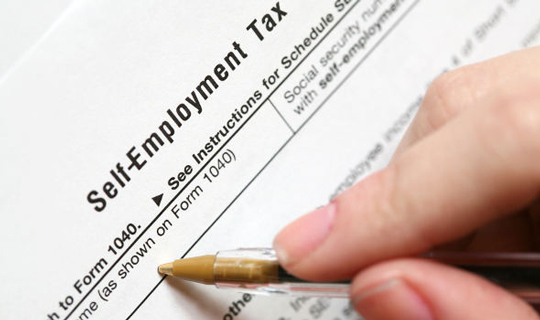One of the most cost effective ways to go into business for yourself is to start freelancing and to run your freelancing business from your home. This keeps startup costs to a minimum, as you won’t have to rent or furnish an office space and you can use the equipment you already have on hand instead of having to fund brand new pieces. And, sure, there’s that whole work-in-your-pajamas-if-you-want-to thing.
Make no mistake, while deciding to freelance is easy, making a real go of it is difficult and time-intensive. And while tracking your income and expenses–especially during that first year–seems straightforward and simple, it is important to be realistic and educate yourself in business finance before you try to do your taxes on your own and accidentally trigger an audit.
That’s right: even in your first year an audit is possible, especially if you don’t know how to track, manage, and report your freelance income. If you haven’t kept up with all of the tax reform changes, then you could make a mistake without even realizing it. Take a deep breath and say goodbye to the 1040EZ, folks. Those days are behind you.

Hiring Help
For most freelancers, the best thing they can do is find someone or something to help them with their finances. For some, this means hiring an accountant or an assistant to do the bookkeeping and tax filing for them. For others who like to manage their details themselves, a good software program should do the trick.
If you do decide to hire someone, especially if you hire that person digitally and they telecommute from another state (or country!), you will have to add payroll and payroll taxes to your list of finances to manage. The experts who developed the MasterTax tax compliance software recommend working with a program that can handle different tax profiles based on your company’s location as well as your assistant/employee’s locations. Remember, tax codes vary from place to place!
Tracking Your Details
Even if you do work with an accountant or outsource your financial management, you need to keep meticulous records for your team. Keep all of your receipts. Record all of your payments accurately. Keep your receipts and invoices in a safe place. The best way to do this is to get into the habit of recording these details as they occur or, at the very least, once a week.
You should also keep copies of receipts as many are now printed with evaporating ink. There are some really great apps out there that you can use to scan receipts as soon as you get them so that you’ll have backups in case any go missing (as many will tend to do).
Separate Bank Accounts
When you first start freelancing, you will likely be tempted to run all of your income/expenses through your personal bank account. This isn’t a great idea. Setting up a separate bank account helps organize your finances more clearly–not just for yourself but for anyone who works with your finances. It also protects your personal money in the event that something goes awry and you find yourself facing a lien or lawsuit.
Changes to the Timeline
As an employee, you paid taxes once a year. As a freelancer/small business owner (even when that business is just you), you will pay taxes multiple times per year. You will need to pay estimated tax payments to the IRS at least quarterly as well as filing an annual return. If you don’t pay your ETPs, large fines can be levied and added to whatever you owe. It gets expensive really fast.
Most of all, your finances are going to require you to be vigilant. When you are freelancing, you cannot coast and assume something will come along or treat your business income like personal income to do with what you wish. Use these tips to help you stay on top of your money and reduce the likelihood of an unpleasant surprise come tax time.

